Best Golf Swing Analyzers 2025
Take a look at some of the best golf swing analyzers on the market that should help you understand and improve your action

Joe Ferguson
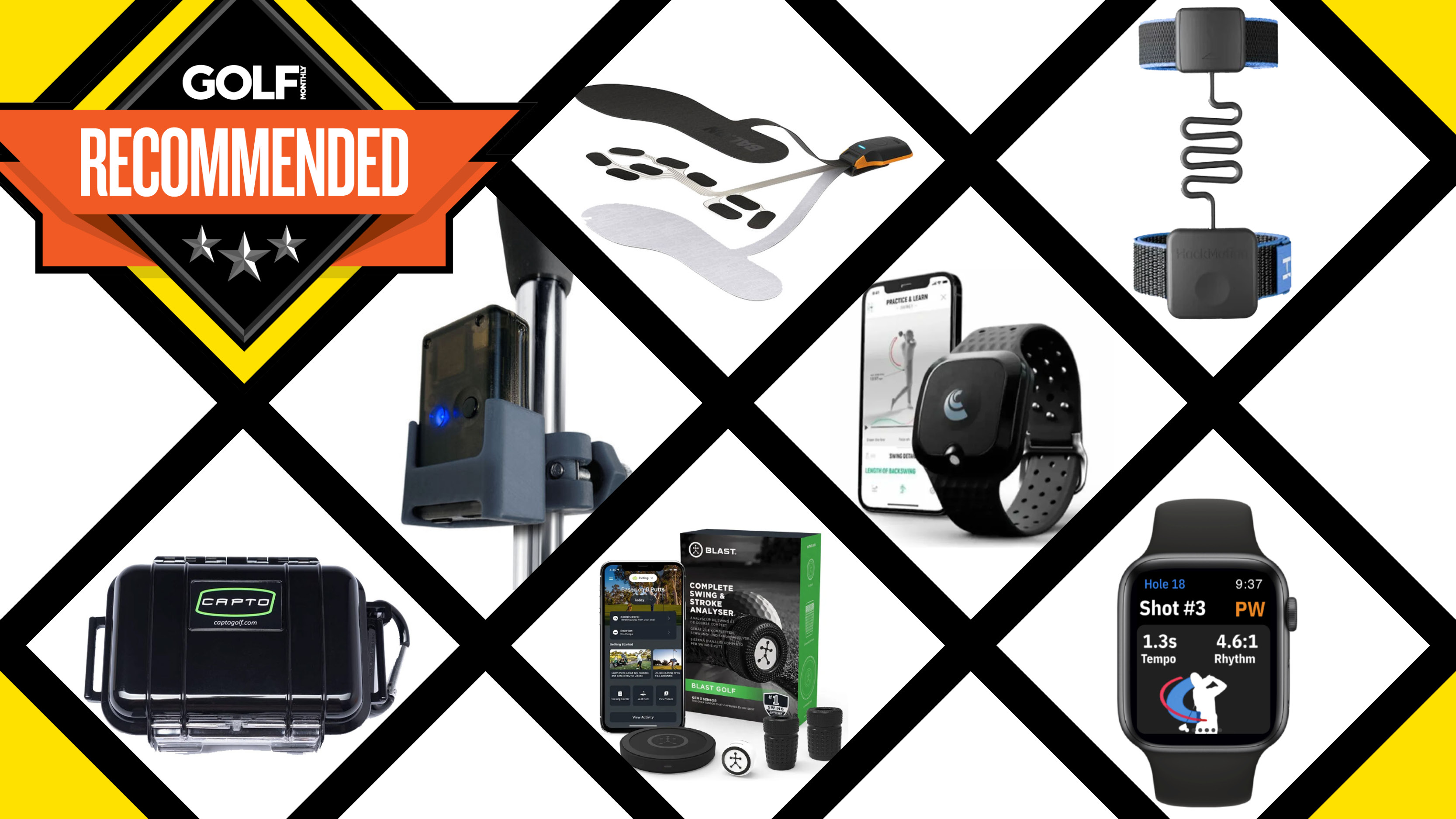
Many golfers find themselves chasing the perfect golf swing, especially after marveling at the speed, power and flexibility of the pros. Unfortunately, most of us will never replicate their swings. But you can definitely maximize your individual potential—thanks to the wonders of modern golf swing analyzers!
Of course, if you're really serious about leveling up your golf game, we'd would recommend seeing your local professional first. After your lesson, practice is key to avoid reverting to old habits. A swing analyzer helps by tracking your progress and providing tailored feedback to reinforce your improvements. Below, we have taken a look at the best products currently available, with these items working well in tandem with the best golf training aids, as well as the best golf launch monitors.
The Quick List
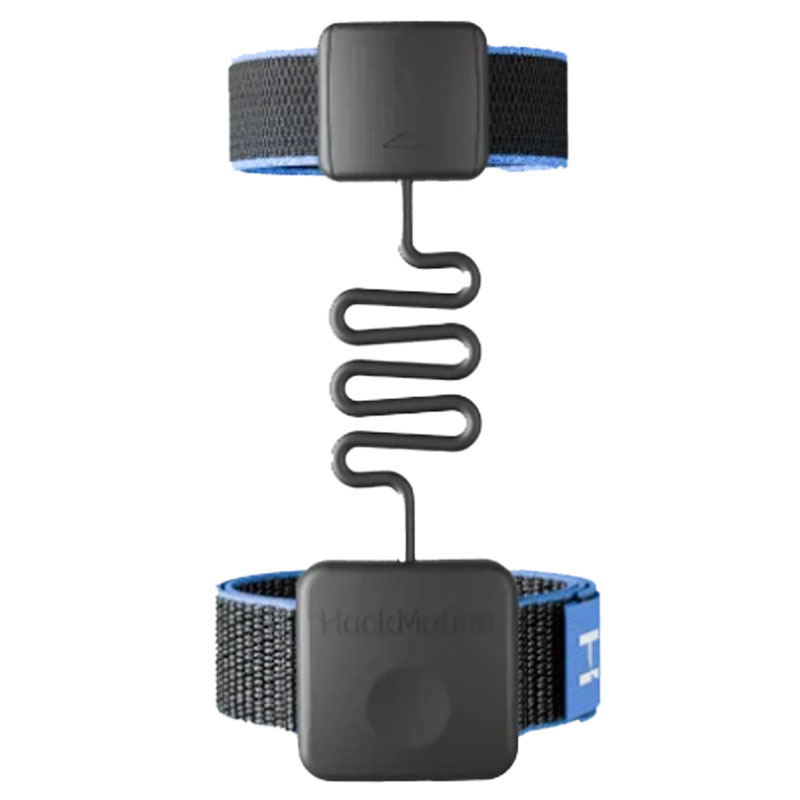
If you struggle with ball striking and general inconsistency, the HackMotion Golf Swing Analyzer is one of the best training aids on the market. The extensive demo videos and data you can view on the app is a sure-fire way to help improve your game.
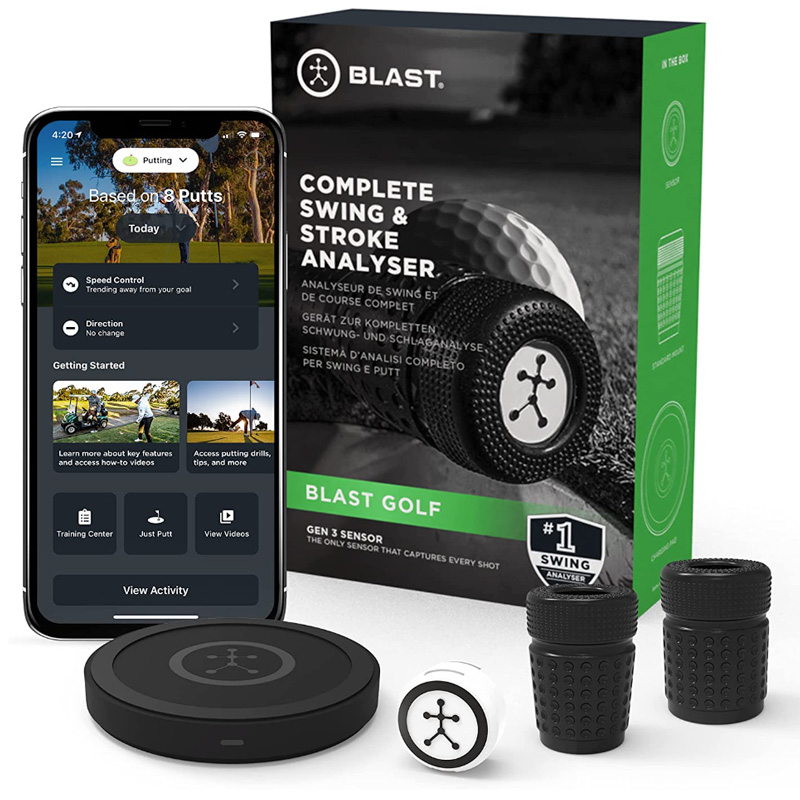
We think the Blast Golf Swing Analyzer is a clever device for driven golfers looking to improve all elements of their swing and striking. It definitely has the potential to transform the way you practice.
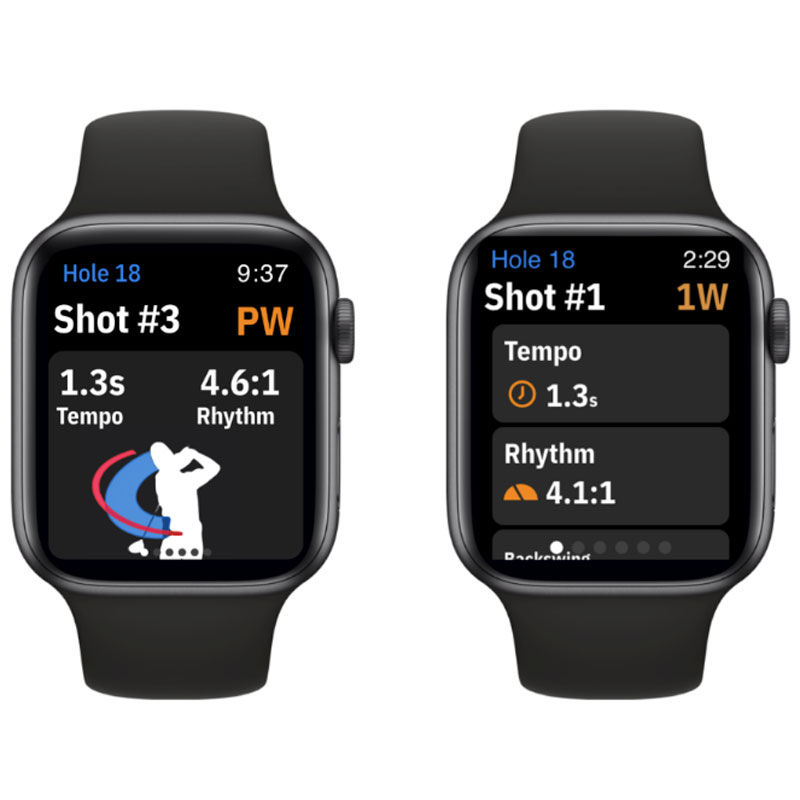
Paired with an Apple Watch, Golfshot's new Swing ID functions like a personal Trackman, making your practice sessions far more productive.
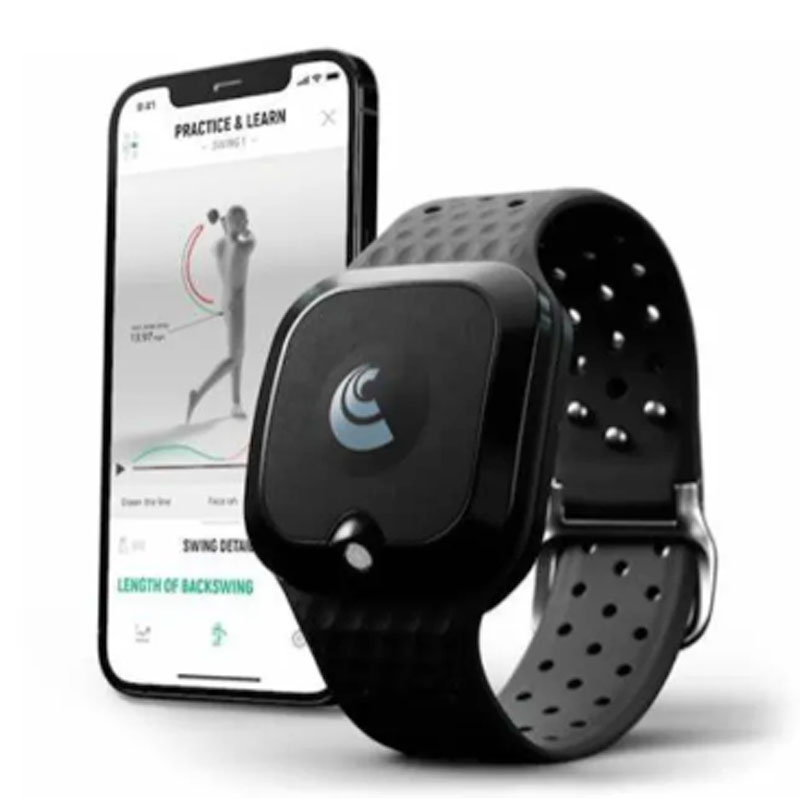
Coming in at a similar price point to personal launch monitors, the Dewiz is ideal for golfers looking to hone in what their body is doing rather than what the ball is doing. The wristband is sleek and stylish too!
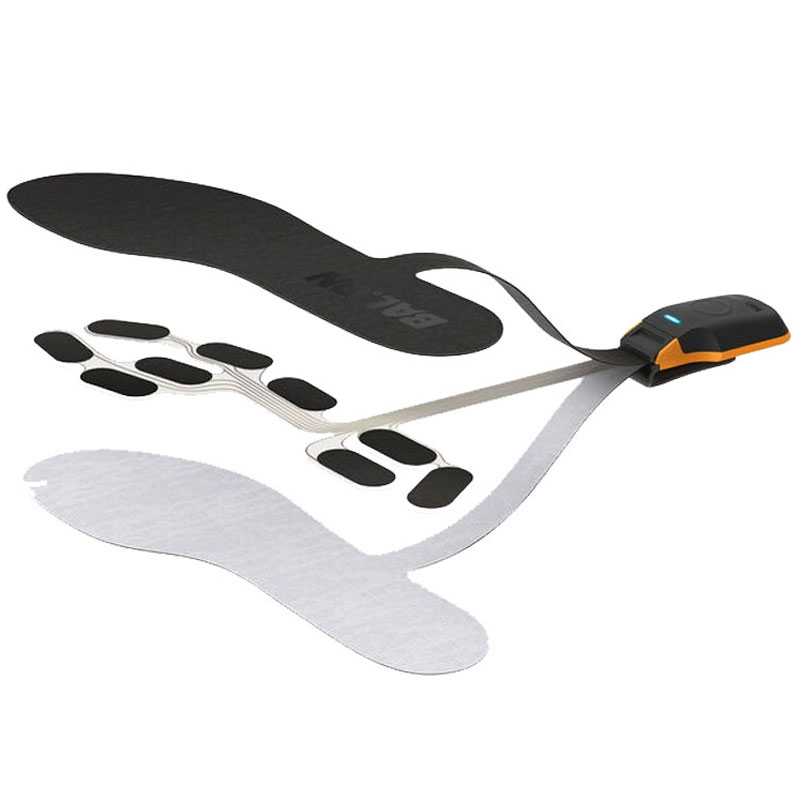
The Bal.on smart kit is an intelligent training aid that will definitely benefit those who struggle to move efficiently when swinging the golf club. The free app is easy to pair with the device and provides instant feedback.
Best Golf Swing Analyzers 2025
Top pick
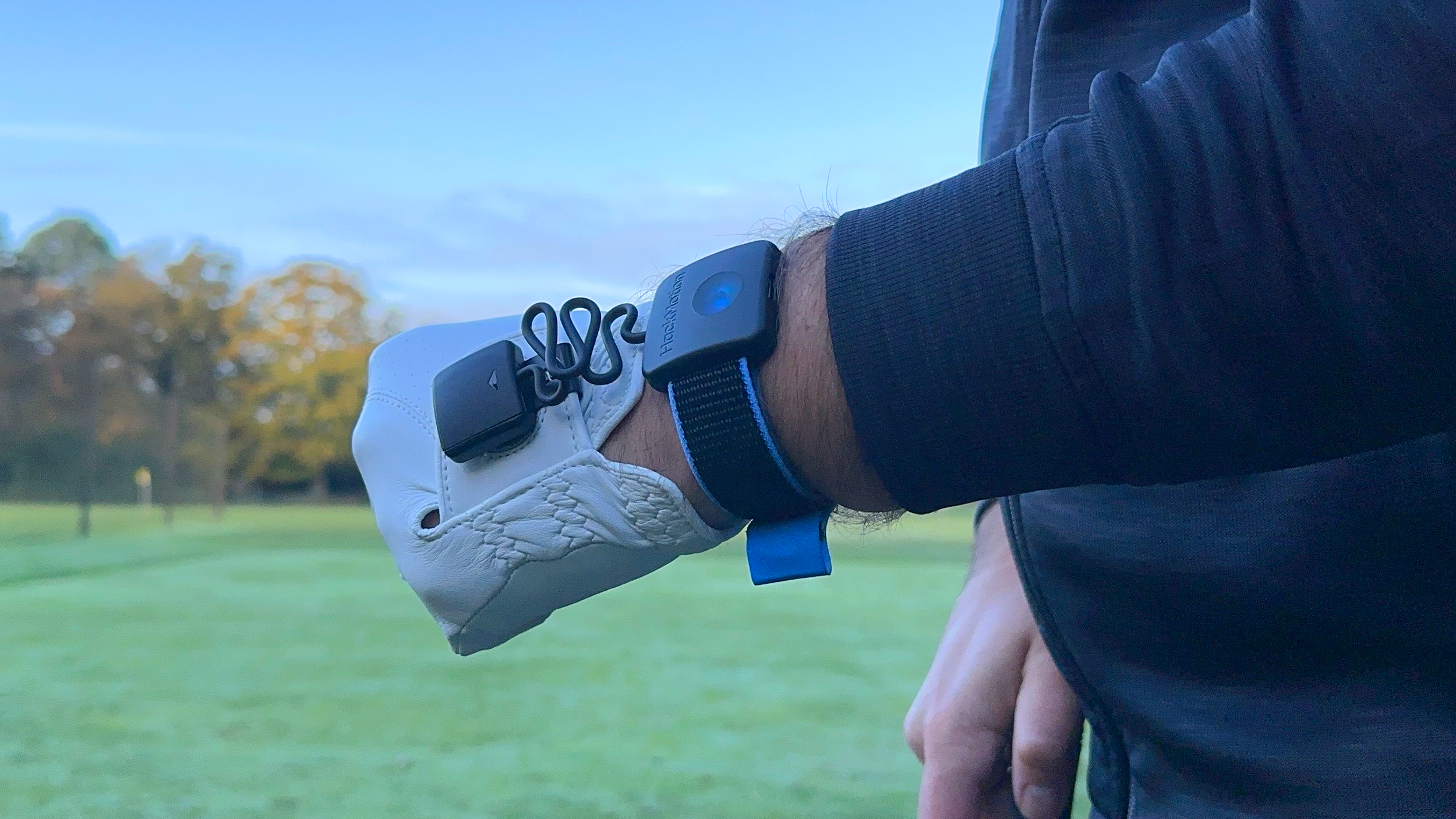
Specifications
Reasons to buy
Reasons to avoid
Our top pick is the HackMotion Swing Analyzer. Using a clever sensor system, the HackMotion helps you learn and implement correct wrist angles throughout the golf swing, which in turn helps you to hit better golf shots thanks to a neutral, stable face.
In testing, we found the calibration of the device simple and straightforward. After that, the feedback was instantaneous and navigating the app was intuitive too. It gives easy to understand processes, and asks what you want to get out of your practice as well so it can pick out specific drills for you.
There's three packages to choose from: Core, Plus and Pro. Each of these come with varying degrees of information and features, whilst also coming with different price points. On the whole, we recommend investing in this device if you struggle with wrist angle, or you want instant feedback on how you move during the golf swing.
- Read our full HackMotion Golf Swing Analyzer Review
Most data metrics

Specifications
Reasons to buy
Reasons to avoid
The Blast Golf Swing trainer lets you practice anywhere, anytime on any part of your golf game. We'd recommend this device for driven golfers looking to improve all elements of their swing and ball striking. Although a couple things could be ironed out from a UX perspective, we think this trainer can transform your practice sessions.
Setup is simple. Just attach the sensors to your golf clubs and start swinging. The Blast Golf app quickly provides a breadth of analytics—impressive, though occasionally a bit overwhelming. However for those that want to deep-dive into stats, the Blast Golf has you covered with metrics ranging from angle of attack, swing tempo ratios, peak hand speed and more. There are no instructions per se but there is a plethora of instructional videos and explainers. The videos - led by brand ambassador and putting guru Brad Faxon - are enjoyable and useful. The videos range from simple explainers on what each metric on the app means, to useful drills on putting and chipping. Additionally the speed and accuracy of the data is remarkably intuitive.
During your swing, a simple amber and green banner lets you know when you’re in the right part of a specific metric. It’s an intelligent way to practice on the range, rather than aimlessly hitting balls.
- Read our full Blast Golf Swing Analyser Review
Best for Apple watches
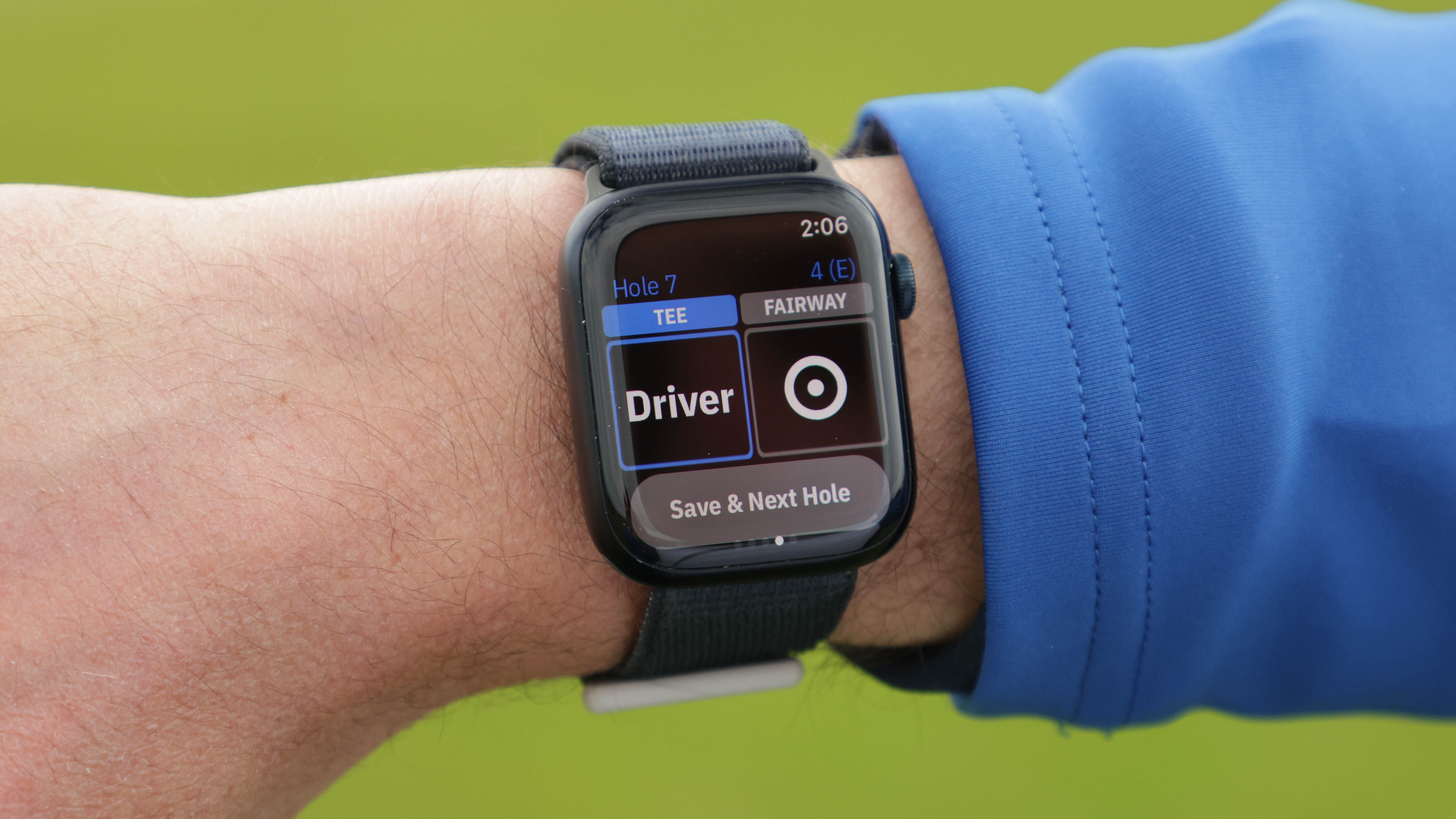
Golfshot Swing ID
Our expert review:
Specifications
Reasons to buy
Reasons to avoid
Apple Watches are increasingly becoming a staple among sports enthusiasts and everyday users alike. It's no surprise then that one of the best gadgets on the market can also be used to improve your golf game using the Golfshot app.
With the Apple Watch's accelerator and gyroscope, the Golfshot app can record record the exact moment when the club meets the ball via the Swing-ID feature. This provides you with comprehensive data and analysis on a whole range of variables like rhythm, tempo, transition and wrist path.
These insights will enhance your practice sessions and give you a far better chance to perform out on the golf course. Put simply, it's like having a Trackman on your wrist but at a fraction of the cost!
Best real-time feedback
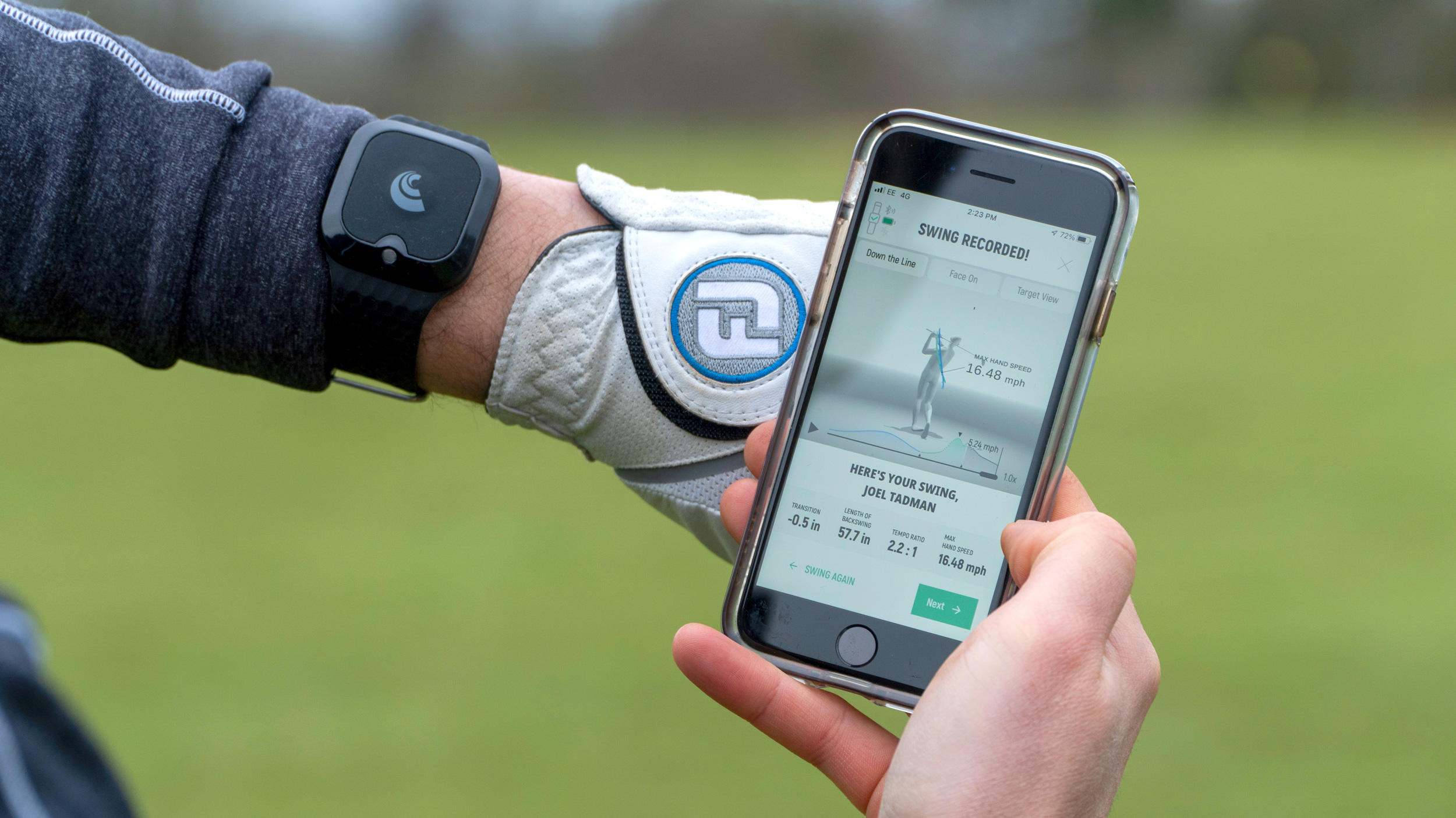
Specifications
Reasons to buy
Reasons to avoid
Trusted by five major champions, including Bryson DeChambeau, Vijay Singh, and Annika Sorenstam, DeWiz stands out as one of golf’s most reliable swing analyzers. Costing roughly the same as a portable launch monitor, we think this is a superb option for golfers that are more interested in what their body is doing versus what the ball is doing.
The wristband itself is sleek, stylish and can easily be paired with any golfing attire. The application is intuitive and lets you see, view and record all your swing data in an easy-to-read view. The unique learning stimuli feature provides instant feedback through an electronic pulse if you deviate from preset parameters, encouraging consistent repetition of your new movement.
In our testing, we found the DeWiz to be an incredibly effective tool that provides players real-time feedback on whether they are implementing correct changes in their movements.
- Read our full Dewiz Training Aid Review
Best for footwork
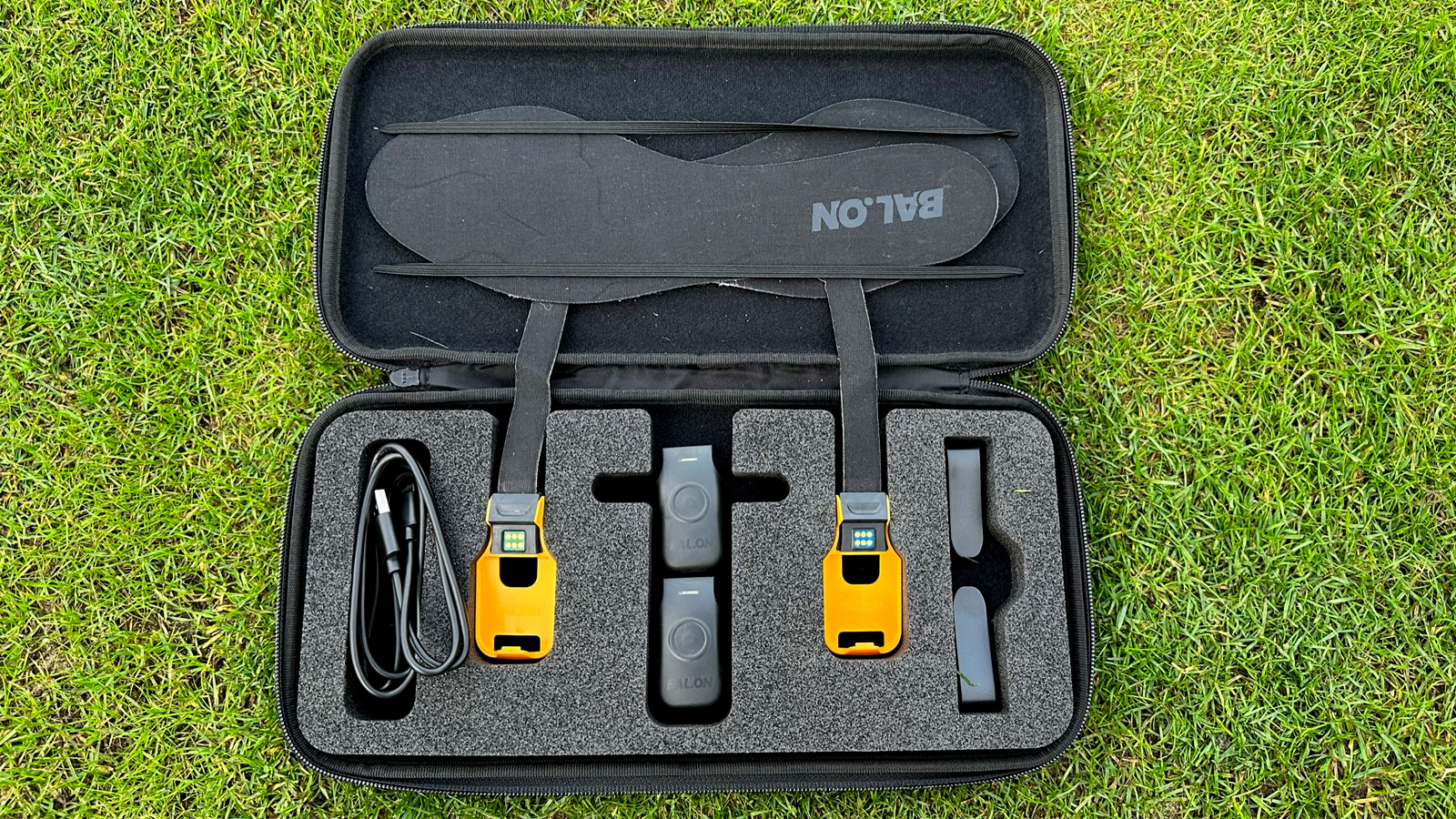
Specifications
Reasons to buy
Reasons to avoid
Developed by automotive manufacturing giants Continental, the Bal.on Smart Kit is a training system for all areas of golf. It enables golfers and their coaches to measure the force applied through their feet and into the ground during a swing. How? The Bal.on consists of a pair of insoles and smart pods that capture pressure data throughout your swing. This is easy to assemble and all packaged neatly inside a simple case.
When we tested a sample, the components felt exceptionally premium and pairing with the application via Bluetooth was seamless. The app enables you to record each swing and provides real-time feedback on your pressure at setup, top of backswing and impact. There's even training tutorial videos showing drills on where and how you could improve your force output.
On the whole, we think the Bal.on is extremely useful for golfers who want to work on their weight transfer and perhaps those who want to work on their balance throughout the swing.
- Read our full BAL.ON Smart Kit Review
How we test swing analyzers
At Golf Monthly we have a comprehensive testing procedure around swing analyzers. As you would expect, this involves using different models out on the course and at home, over a number of rounds and training sessions to give us an idea on how particular models operate and the kinds of data they deliver.
As the entire team are regular golfers, swing analyzers get compared to one another side by side to test for things like accuracy, waterproofing, durability and other features. That way we can give honest and insightful feedback to you.
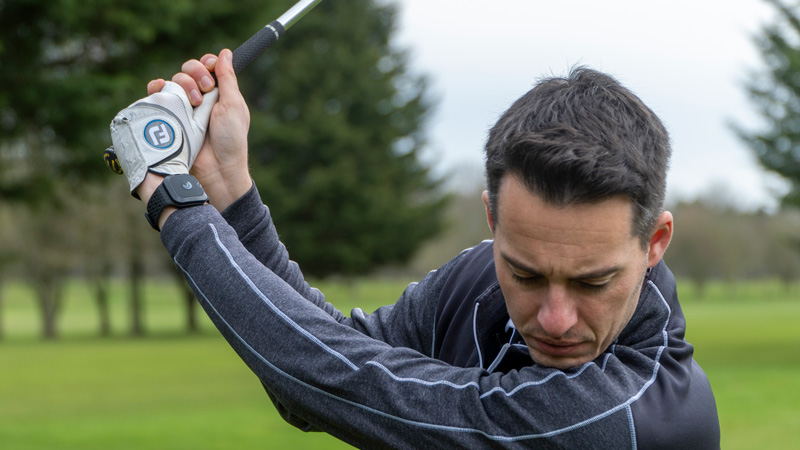
Joel Tadman testing the Dewiz analyzer
The tech side of golf is overseen by several members of the Golf Monthly team, specifically members of the gear testing team in Deputy Editor Joel Tadman, PGA Professional Joe Ferguson and former EuroPro/Clutch Pro Tour player Sam De'Ath. All are regular golfers and have been testing golf gear for years so are experts in their fields.
The final thing we wanted to mention in this section is no manufacturer can buy a good review. Our testing team reviews golf equipment and makes its own opinion on how good or bad the product is.
What to consider when buying a swing analyzer
Swing analyzers can be very technical products. They can also be very expensive, so if you're thinking about buying a new golf swing analyzer, you'll need to ensure you're getting the right one for you. Here are a few handy tips to bear in mind when buying a new swing analyzer.
What you're looking to test
This is a straightforward point, but there's no point in buying a Garmin TruSwing if you want to hone in on your putting game. Granted, the TruSwing might be able to help in some way, but it won't give you as reliable putting data as the BioMech simulator. For that reason, look to the attributes of each product and see which matches up best to the area of your game you want to improve.
What information do you want to obtain?
Before buying a new swing analyzer, it's wise to understand what areas of your swing, or your game, you want to improve. That'll help you better understand the information and data you need to help you improve everything from your ball striking to your club speed. For example, if you find yourself slicing a lot, you may want to get a sensor that will show you the angle of your clubface on attack. Or if you're the type of golfer looking to strike through harder, then maybe swing analyzers that deliver club speed data are the way to go.
Clip on or screw in
If you're looking at buying a sensor for your longer clubs, you can either get sensors that clip onto the shaft of your club, clip onto your glove, or screw into the top of your grip. Each can be fiddly to use and it depends on your comfort preferences as a player of what kind of trainer you want to use. Screw in sensors tend to be the most preferred option, but clip on options can give slightly cooler data showing you 3D models of your club plane.
Budget
Like some of the best portable launch monitors, swing analyzers do not come cheap. For that reason it's wise to asses your budget and what you want to use the sensor for. You may want to factor your experience level into that as well, and I'd advise against a beginner or low handicap golfer forking out a lot of money for a state of the art swing sensor.
Applications
Be also careful to check what other equipment you need to use your swing sensors. Many use applications that must be downloaded to a tablet or smartphone. Some may also require you to enter personal information in order to gain access to their software, while others may work on a subscription based service. To avoid disappointment, make sure to read the fine print before you buy your swing analyzer.
Golf technology is becoming more and more popular nowadays, so if you're in the market to kit yourself out with all the latest gear, check out our guides on the best golf rangefinders, best golf watches and best golf GPS devices.
FAQs
What do golf swing analyzers do?
Golf swing analyzers allow players to collect data on all aspects of their swing. They can then look at that data and use it to decipher how they can improve their game, by altering the way they strike the ball.
Are swing analyzers worth it?
Typically, yes, but it can often depend on your experience level. Experienced players may benefit more from a session with a swing analyzer than a beginner, who may need more time to perfect their technique before looking at the numbers behind their game.
How do golf sensors work?
Depending on the product, golfers can attach the senors to their club, usually by screwing them into their club grip, and link those sensors up to an application. All they need to do then is play a few shots and start to see the data come in on their smart device. That should show them numbers on how well they are hitting the ball as well as what they can do to improve their swing.
If you want more buying advice, why not take a look at our guides on the best golf net, or best golf mat as well.
Subscribe to the Golf Monthly newsletter to stay up to date with all the latest tour news, equipment news, reviews, head-to-heads and buyer’s guides from our team of experienced experts.

Sam has worked in the golf industry for 14 years, offering advice on equipment to all levels of golfers. Sam heads up any content around fairway woods, hybrids, wedges, putters, golf balls and Tour gear.
Sam graduated from Webber International University in 2017 with a BSc Marketing Management degree while playing collegiate golf. His experience of playing professionally on both the EuroPro Tour and Clutch Pro Tour, alongside his golf retail history, means Sam has extensive knowledge of golf equipment and what works for different types of golfers.
- Joe FergusonStaff Writer